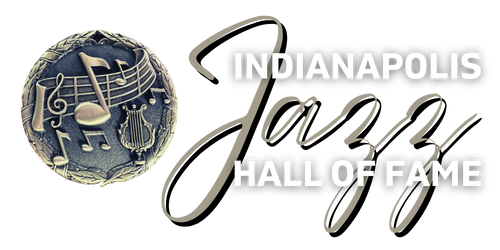
Al Cobine
Composer, Arranger, Bandleader, Saxophonist
Inducted into the Indianapolis Jazz Hall of Fame in 1998
Al Cobine
(March 25, 1928 - May 21, 2009)
Al Cobine, born in Richmond, Indiana, graduated from Richmond High School and Earlham College, received his MA from the University of Cincinnati, and continued his studies at Indiana University in Bloomington. It was in Bloomington, that Cobine formed his band, in the fall of 1956. By 1960 his band received an award from the National Ballroom Association, and in 1961 the band won an award for being "best of the new dance bands," presented by the American Federation of Musicians.
Over the years, Cobine’s band attained a fine reputation for musical excellence and versatility. By 1962, Cobine was writing music for the Little 500 Show, wrote for the The Singing Hoosiers, and backed up the many giants of show business such as Petula Clark, Bob Hope, Pat Boone, Wayne Newton, Bobby Darin, Vikki Carr, Vic Damone and many others. On the strength of these performances, he and the band started touring the country, as back-up to the stars, with such diverse people as Glenn Campbell, Seals & Crofts, Elvis Presley (1973), John Denver and Tom Jones (1974 and 1975).
In 1965, Henry Mancini began touring the U.S. with a 40-piece concert orchestra and Al Cobine was asked to contract the group. That started a long association first as music contractor-band leader, then as tenor sax soloist. Cobine and his musicians toured in 36 states with Mancini, and hundreds of thousands have heard Cobine perform the "Pink Panther" and "The Days of Wine and Roses." In 1967, Andy Williams joined Mancini and they toured with great success for the next several years.
As a writer-arranger, Cobine is best known for his "Vermont Suite," music for brass, his theme music for the television show "Wild Kingdom," stage band works, "October In The Air", "Love and Joy", "Jazz Espagnol", "Short and Sweet", "I Won’t Dance", "My Man Quincy", and many others. Cobine did a variety of things in the musical field, but he always felt that the most important thing in his musical life was his band.












